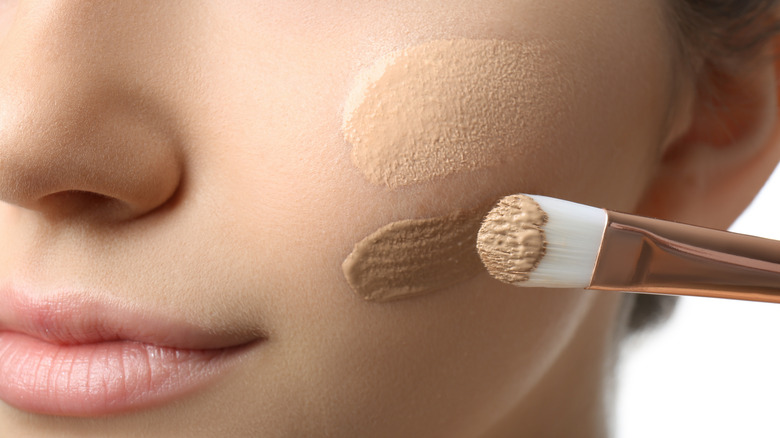What You Really Need To Know About Permanent Concealer
Cosmetic facial tattoos anything new. The concept of tattooing permanent makeup onto skin has been a part of the beauty sphere for quite a while; from eyebrow tattooing to permanent lipstick, the trend has really taken off. And it's easy to see why. Who doesn't want to wake up already looking perfectly put together with minimal effort?
According to Refinery29, the pandemic created a makeup revolution, where an increasing number of people swapped to "low-maintenance, natural makeup" in lieu of full-coverage makeup looks and products. That love for a minimal, effortless look has remained popular, with an increasing number of people choosing to reduce the amount of makeup they're now wearing.
TikTok has seen a real increase in the number of people choosing to swap their go-to makeup products for a more permanent alternative, too. According to Glamour, the cosmetic trend focuses primarily on concealing dark under-eye bags, and is starting to become as popular in the form of eyebrow microblading, tattooed lipstick, and permanent eyeliner.
So, what exactly is this new trend of tattooing concealer to mask dark bags and blemishes, and how does it work?
What is a permanent concealer, and how does the process work?
Refinery29 explains that permanent concealer is also dubbed micropigmentation, which is a cosmetic process that utilizes the tattooing process to create a makeup-like look. The permanent concealer process was first used by Brazilian tattoo artist Rodolpho Torres, who specializes in masking skin imperfections (think: scars, burns, and other issues) using "skin-colored pigments." According to Glamour, the pigments are etched into the skin using the same process as tattooing, with a tattoo gun actually being used.
The innovative procedure ensures that the color pigments, which are custom-matched to each person's skin tone, are positioned between the patches of darkness under the eyes and the skin's surface, perfectly masking dark under-eye bags.
Glamour adds that, while the procedure does tend to yield good results, it's worth noting that it's a relatively new procedure and not enough is known about its long-term results. It's also important to be aware that the eye area is delicate, and with the tattooing process being so close to your eyes, if something were to go wrong (such as an infection occurring after treatment), your sight could be affected.

